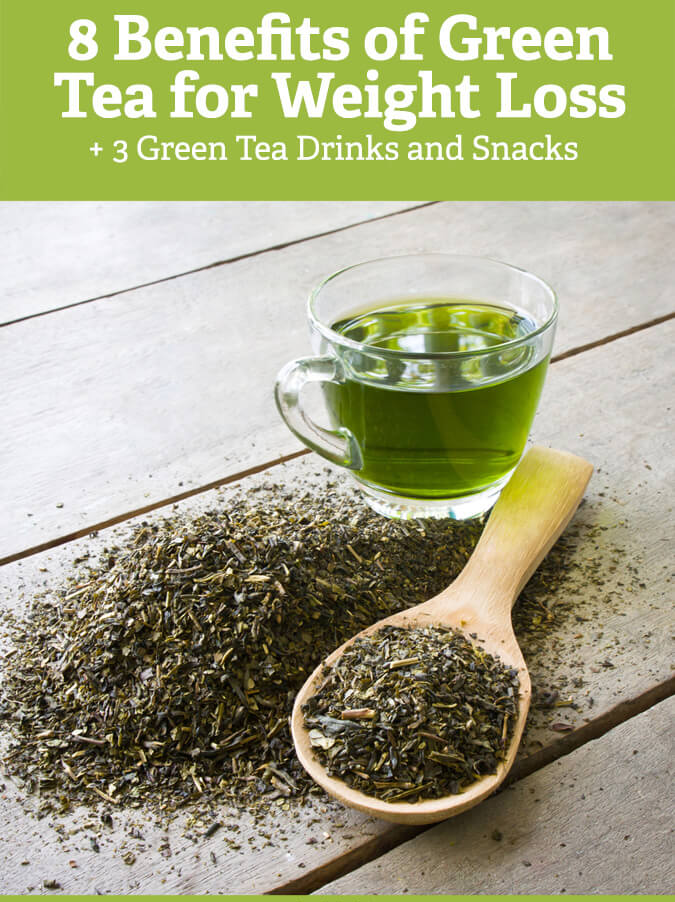Content Menu
● Understanding Green Tea Extract
● The Science Behind Green Tea Extract and Fat Loss
● Dosage Considerations for Fat Loss
● Incorporating Green Tea Extract into Your Fat Loss Regimen
● Potential Side Effects and Precautions
● Beyond Fat Loss: Additional Benefits of Green Tea Extract
● Conclusion: A Balanced Approach to Green Tea Extract for Fat Loss
Green tea has been a staple in many cultures for centuries, revered not only for its soothing taste but also for its numerous health benefits. In recent years, green tea extract has gained significant attention in the world of weight management and fat loss. This powerful concentrate, derived from the leaves of the Camellia sinensis plant, is packed with bioactive compounds that may contribute to weight loss and improved body composition. But the question remains: how much green tea extract should one consume for optimal fat loss results? Let's delve into this topic and explore the science behind green tea extract's potential as a weight loss aid.

Understanding Green Tea Extract
Before we discuss dosage, it's crucial to understand what green tea extract is and how it works. Green tea extract is a concentrated form of green tea, containing high levels of polyphenols, particularly catechins. The most abundant and potent catechin in green tea is epigallocatechin gallate (EGCG), which is believed to be responsible for many of its health benefits, including its potential fat-burning properties.
Green tea extract also contains caffeine, albeit in smaller amounts compared to coffee. The combination of catechins and caffeine is thought to work synergistically to boost metabolism and increase fat oxidation, potentially leading to weight loss over time.

The Science Behind Green Tea Extract and Fat Loss
Numerous studies have investigated the effects of green tea extract on weight loss and fat oxidation. The mechanisms by which green tea extract may contribute to fat loss include:
1. Increased Thermogenesis: Green tea extract has been shown to boost the body's metabolic rate, a process known as thermogenesis. This increase in energy expenditure can lead to more calories burned throughout the day.
2. Enhanced Fat Oxidation: The catechins in green tea extract, particularly EGCG, may help to increase the body's ability to break down and utilize fat for energy, a process called fat oxidation.
3. Appetite Suppression: Some studies suggest that green tea extract may help to reduce appetite and food intake, potentially leading to a decrease in overall calorie consumption.
4. Inhibition of Fat Absorption: Green tea catechins may interfere with the absorption of dietary fat in the intestines, potentially reducing the amount of fat stored in the body.
5. Modulation of Fat Metabolism: Green tea extract may influence the expression of genes involved in fat metabolism, potentially leading to decreased fat storage and increased fat burning.
While these mechanisms are promising, it's important to note that the effects of green tea extract on fat loss can vary among individuals and may be influenced by factors such as diet, exercise, and overall lifestyle.
Dosage Considerations for Fat Loss
When it comes to determining the optimal dosage of green tea extract for fat loss, there is no one-size-fits-all answer. The effective dose can vary based on factors such as body weight, individual metabolism, and overall health status. However, research provides some guidance on potentially effective dosages.
Many studies investigating the effects of green tea extract on weight loss have used doses ranging from 250 to 500 mg of green tea extract per day, often divided into multiple doses. Some studies have used even higher doses, up to 800 mg per day. It's important to note that these doses refer to the green tea extract itself, not just the EGCG content.
The EGCG content in green tea extract can vary, but it typically ranges from 50% to 70% of the total catechins. For fat loss purposes, some researchers suggest aiming for a daily EGCG intake of around 400-500 mg.
Incorporating Green Tea Extract into Your Fat Loss Regimen
If you're considering adding green tea extract to your fat loss regimen, here are some tips to keep in mind:
1. Start Low and Go Slow: Begin with a lower dose and gradually increase it to assess your tolerance. This can help minimize potential side effects such as jitters or digestive discomfort.
2. Spread Out Your Doses: Instead of taking a large dose all at once, consider spreading your intake throughout the day. This may help maintain more consistent levels of catechins in your system.
3. Take with Meals: Some research suggests that taking green tea extract with meals, particularly those containing fat, may enhance the absorption of catechins.
4. Be Consistent: Like most supplements, the potential benefits of green tea extract are likely to be more pronounced with consistent, long-term use.
5. Combine with a Healthy Diet and Exercise: Green tea extract is not a magic bullet for fat loss. It's most effective when combined with a balanced diet and regular physical activity.
6. Choose a High-Quality Supplement: Look for reputable brands that provide third-party testing and clearly state the EGCG content of their green tea extract.
7. Consider Timing: Some people find that taking green tea extract in the morning or before workouts provides an energy boost and potentially enhances fat burning during exercise.

Potential Side Effects and Precautions
While green tea extract is generally considered safe for most people when used in moderate amounts, it's not without potential side effects. Some individuals may experience:
1. Caffeine-related side effects: Jitters, anxiety, insomnia, or rapid heartbeat, especially in those sensitive to caffeine.
2. Digestive issues: Nausea, stomach upset, or constipation in some people.
3. Iron absorption interference: Green tea may reduce the absorption of iron from food sources.
4. Interactions with medications: Green tea extract may interact with certain medications, including blood thinners and some antibiotics.
5. Liver concerns: In rare cases, high doses of green tea extract have been associated with liver problems.
It's always wise to consult with a healthcare professional before starting any new supplement regimen, especially if you have pre-existing health conditions or are taking medications.

Beyond Fat Loss: Additional Benefits of Green Tea Extract
While the focus of this article is on fat loss, it's worth noting that green tea extract offers a wide array of potential health benefits beyond weight management. These include:
1. Antioxidant Properties: The high concentration of polyphenols in green tea extract provides potent antioxidant effects, which may help protect cells from damage caused by free radicals.
2. Heart Health: Some studies suggest that regular consumption of green tea extract may support cardiovascular health by improving cholesterol levels and reducing blood pressure.
3. Brain Function: The combination of caffeine and L-theanine in green tea extract may enhance cognitive function, including improved mood, alertness, and memory.
4. Blood Sugar Regulation: Green tea extract may help improve insulin sensitivity and reduce blood sugar levels, potentially benefiting those with or at risk of type 2 diabetes.
5. Skin Health: The antioxidants in green tea extract may help protect the skin from UV damage and signs of aging when applied topically or consumed orally.
6. Exercise Performance: Some research indicates that green tea extract may enhance endurance and recovery from exercise.
7. Cancer Prevention: While more research is needed, some studies suggest that the antioxidants in green tea extract may have cancer-fighting properties.
These additional benefits make green tea extract an attractive supplement for overall health and wellness, beyond its potential effects on fat loss.
Conclusion: A Balanced Approach to Green Tea Extract for Fat Loss
In the quest for effective fat loss strategies, green tea extract emerges as a promising ally. Its unique combination of catechins and caffeine may help boost metabolism, enhance fat oxidation, and support overall weight management efforts. However, it's crucial to approach green tea extract supplementation with realistic expectations and a balanced perspective.
While the optimal dosage can vary, a range of 250-500 mg of green tea extract per day, providing approximately 400-500 mg of EGCG, appears to be a reasonable starting point for most individuals. Remember that these are general guidelines, and individual responses may vary.
It's important to view green tea extract as part of a comprehensive approach to fat loss and overall health. No supplement can replace the fundamental pillars of a healthy lifestyle: a balanced diet, regular physical activity, adequate sleep, and stress management. Green tea extract should be seen as a potential enhancer of these core practices, not a substitute for them.
Moreover, the journey to sustainable fat loss is often a gradual process. Patience and consistency are key. While some individuals may experience noticeable effects from green tea extract relatively quickly, for others, the benefits may be more subtle and accumulate over time.
As with any supplement, it's wise to approach green tea extract use mindfully. Start with a lower dose, monitor your body's response, and adjust as needed. Pay attention to how you feel, and don't hesitate to consult with a healthcare professional if you have any concerns or questions.
Ultimately, the decision to incorporate green tea extract into your fat loss regimen is a personal one. By understanding the science behind its potential benefits, considering appropriate dosages, and maintaining a holistic approach to health and wellness, you can make an informed choice about whether green tea extract is right for you.
Remember, there's no one-size-fits-all solution to fat loss. What works best for one person may not be ideal for another. Listen to your body, stay informed, and be willing to adjust your approach as needed. With patience, persistence, and a balanced perspective, you can harness the potential benefits of green tea extract as part of your journey towards your health and fitness goals.































